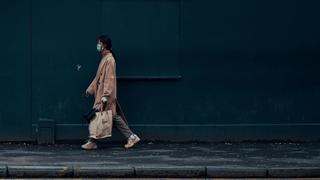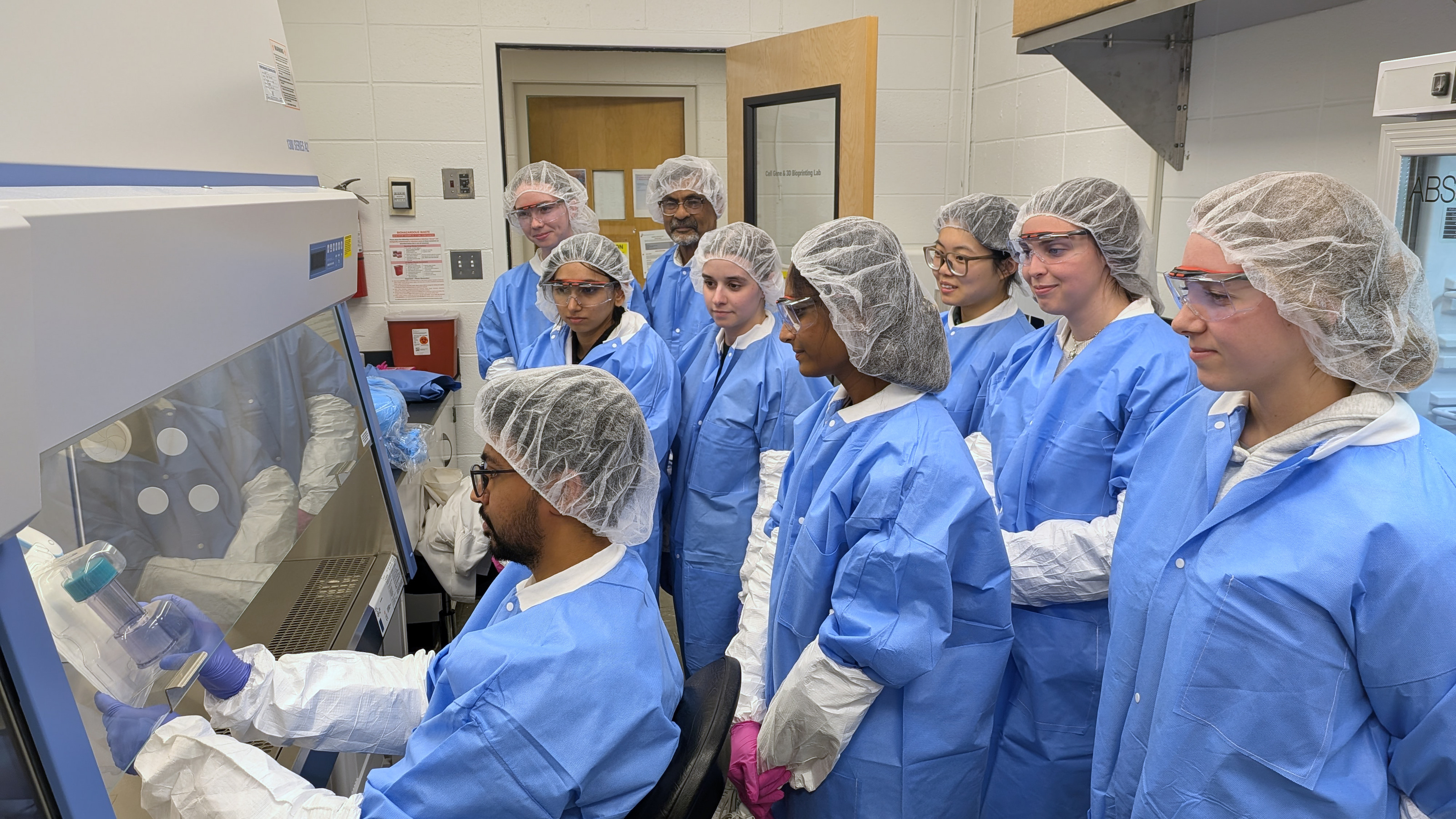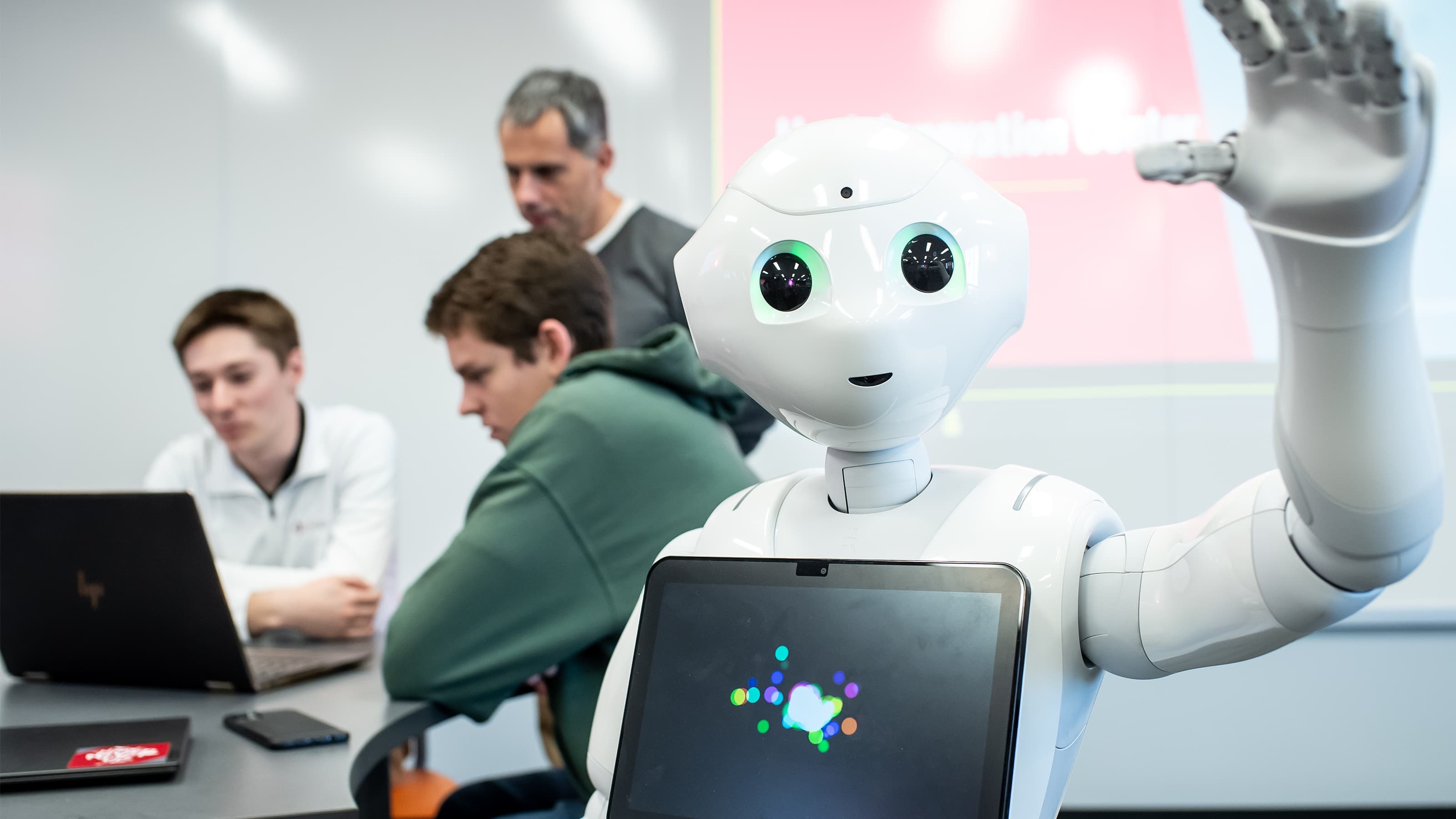Lenora Thomas ’23 Uses Poetry to Express Outcomes of Pandemic Isolation
As part of her Summer Scholars research, communication studies major Lenora Thomas ’23 will examine how COVID-19 isolation has forever changed the outlook of individuals in her close-knit West Philadelphia community. Ultimately, Thomas will produce a multimedia anthology of poetry that shares individual pandemic experiences.

Growing up, Lenora Thomas ’23 felt pressure to excel academically, which meant all her accomplishments came with a caveat — every A should have been an A+ and any time her peers outperformed her, she agonized over how to be more like them.
“I realized all the actions I was taking, the thoughts I was having, were impacting me and I was rotting away inside,” she recalls. “And I see that in a lot of people. Externally, they’re doing fine, they look great and successful, but they go home at night and feel totally alone or empty, they abuse themselves somehow. Those struggles are prevalent and they come from within us.”
Thomas, currently a communication studies major at Saint Joseph’s, grew up in a tightknit community in West Philadelphia. As she watched the world go into lockdown at the start of the pandemic, she realized her friends and neighbors were likely dealing with their own feelings of isolation — maybe for the first time — and she wanted to better understand how that would forever change their outlook. This summer, she plans on leaning into her own mental health struggle to examine how the people around her experienced the COVID-19 pandemic through uniquely positioned Summer Scholars research.
“For the past year and a half, we’ve heard a lot about the physical tolls that COVID has had on the human body and endless political rhetoric on the subject, but there is a real lack of conversation going on about the effects this is having on everyone’s mental health,” Thomas notes. “This is going to forever change our interactions, our feelings toward each other and maybe even our feelings about ourselves.”
For instance, at the beginning of lockdown, Thomas considered herself an introvert.
“I spent month after month with just myself and my nuclear family and then I realized, wow. I really need other people,” she laughs. “I wasn’t quite what I thought I was. I think that’s the case for a lot of people.”
Steven Hammer, Ph.D., associate professor of communication and media studies, wholeheartedly agrees.
“I was totally convinced of the opposite about myself,” he admits. “I thought I was 100% an extrovert and then, as I saw all these opportunities to not get involved with people around me, I found myself kind of really enjoying the excuse. I didn’t have to see anyone. At all. Ever. It was so liberating.”
Hammer will be acting as an advisor to Thomas on her Summer Scholars project. As Thomas studies how the people in her community have changed their behaviors and attitudes after 16 months of near isolation, Hammer will support her in the creation of a multimedia, interactive poetry anthology.
In order to do this, she will be interviewing a diversity of subjects in the neighborhood — not only friends and family, but also community leaders, members of law enforcement and local elected officials.
We’ve all done a lot of work on ourselves during this time. It’s time we get outside of ourselves and take a look at the people around us.
Lenora Thomas '23
“We’ve all done a lot of work on ourselves during this time,” Thomas says. “It’s time we get outside of ourselves and take a look at the people around us to get a better understanding of how everyone else has been doing.”
Ultimately, Thomas wants her anthology’s audience to know they were never alone in their struggle through lockdown.
“I was so excited when Nora brought this project to me,” says Hammer. “I’m by no means a poet but, watching the world cope with lockdown through different media platforms was something I got very nerdy about as a teacher. So helping guide her in how we translate this project across media, how we ask the right questions and make it interactive — it has been a really fun experience.”
Hammer also notes that Thomas has a great advantage being embedded in the community she will be working with.
“Nora isn’t just popping in to ask a few questions and then duck out,” he says. “These people who work so hard to make her community successful watched her grow up. They’re invested in her and she’s invested in them. I think that will have a hugely positive effect on the tenor of her interviews in general.”
Thomas has worked with Hammer to compile a list of questions for her subjects.
“My favorite question on the list is, who is the first person you’re going to hug? Because I’m so excited to hear the answers.” Thomas says, “I think everyone I talk to is going to surprise me on that one, for sure. Honestly, every answer has the potential to be surprising. We’ve all spent so much time only relating to ourselves that who knows what we’ve come to realize during this time.”
Thomas, however, does admit that taking something like experience and measuring it for a research project feels very daunting. But Hammer doesn’t seem concerned about that aspect for his advisee.
“I think what’s most important about Nora’s work, from a scholarly point of view, is that research need not be just quantitative or qualitative,” Hammer insists. “Forgoing that sometimes erudite way of framing research and making her findings so accessible will really engage people in a creative expression of a human experience."



